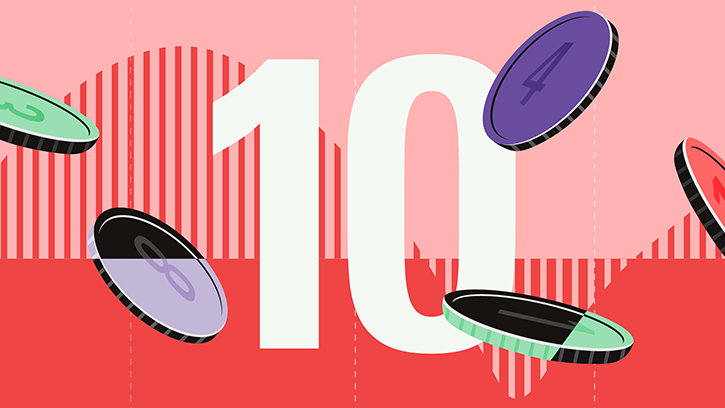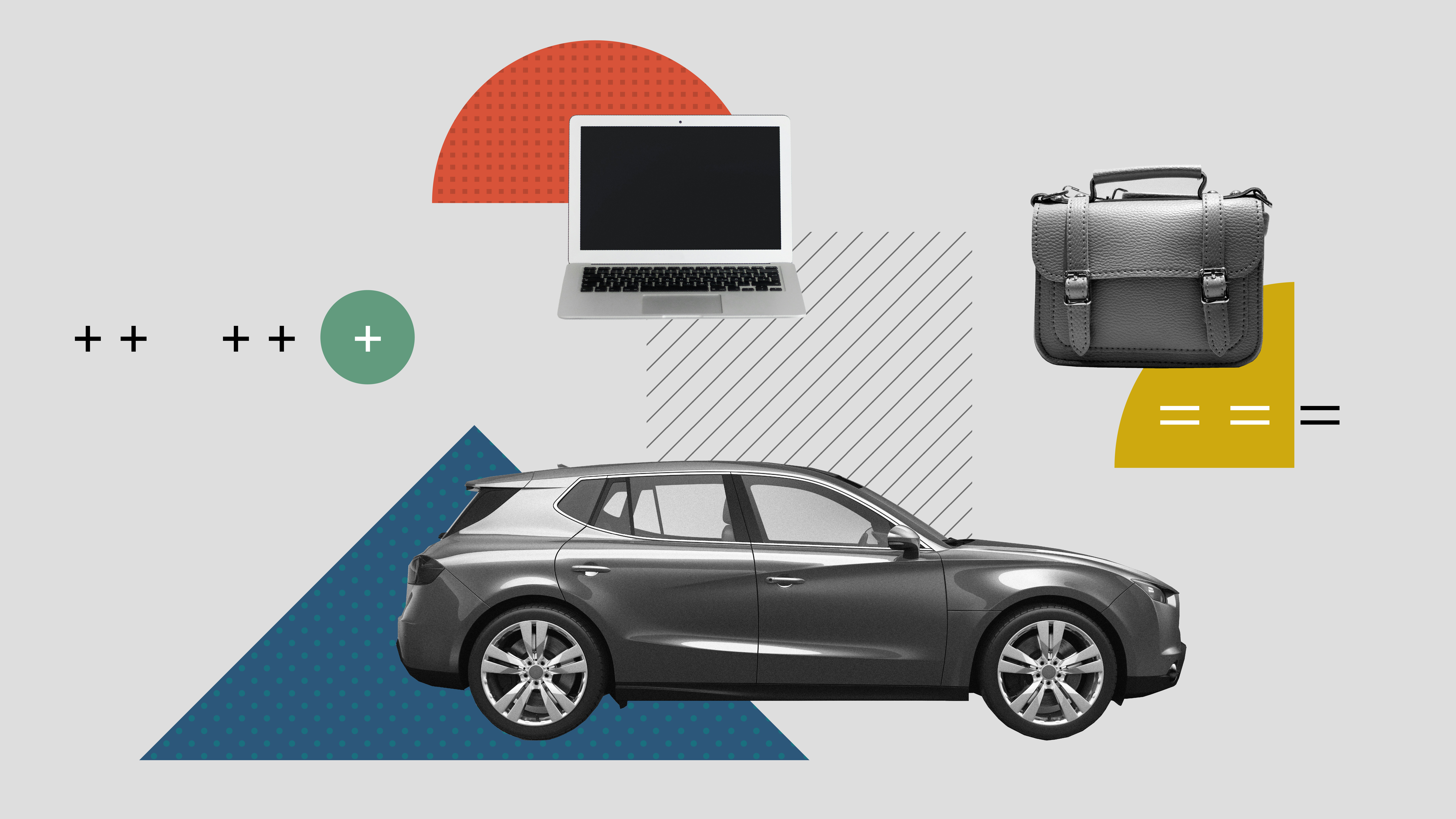
It has been a lively year for the global economy, with uncertainty over Brexit, the US-China trade war, political tension in Latin America and protests in Hong Kong just some of the issues investors had to grapple with.
It’s not surprising, then, that the investment world has been struck by swings in sentiment each month of the year. In the past few month alone we have seen emerging markets suffer while biotech boomed in November, index-linked gilts, US and global funds struggled in October while UK funds dominated the top performers, and gold funds lost their lustre in September only for the precious metal to rally again in recent weeks.
But which are the funds that have put in the best performance of the year, and which have struggled to keep up? We look at the best and worst Morningstar Analyst Rated funds of the year:
Best Performing Funds
The £1.7 billion Gold-Rated ASI UK Smaller Companies tops the chart, with a meaty gain of 35.2% year to date, shrugging off any concerns investors may have had about the effect of Brexit on smaller British businesses. Indeed, £1,000 invested in the fund at the start of the year would now have grown to £1,352.
The fund remains “a standout choice for investors”, according to Morningstar analyst Samuel Meakin. The two main reasons are its stable investment approach and the manager’s long tenure and strong track record – Harry Nimmo has run the fund since 1997. Nimmo uses a quantitative screening to identify companies with sustainable long-term growth prospects, proven business models and recurring earnings.
| Name | Morningstar Rating | Morningstar Analyst Rating | Return (%) |
| ASI UK Smaller Companies | 5 | Gold | 35.2 |
| BlackRock European Dynamic | 5 | Bronze | 29.6 |
| Artemis US Select | 4 | Bronze | 28.7 |
| T. Rowe Price Global Tech | n/a | Neutral | 28.5 |
| JPM US Select | 4 | Silver | 27.9 |
| Baillie Gifford International | 4 | Bronze | 27.2 |
| HSBC American Index | 5 | Gold | 27.1 |
| Baillie Gifford Global Discovery | 4 | Silver | 27.0 |
| Baillie Gifford Global Alpha | 4 | Bronze | 26.8 |
| L&G US Index | 4 | Gold | 26.7 |
| Source: Morningstar Direct |
The ASI fund is, however, the only UK-focused fund to make it into the top performers, that's despite a relief rally on the FTSE after Boris Johnson secured a Conservative Party General Election victory, removing some of the uncertainty from the outlook.
In second spot is the £3.7 billion Bronze-rated Blackrock European Dynamic fund: it has smashed its benchmark, the MSCI Europe Ex UK by 10.9%, delivering a return of 29.6% year to date. The fund invests a quarter of its assets in industrials such as French engine maker Safran, with heavy weightings also in the strong-performing healthcare and technologies sectors. Top holdings include big names such as German software company SAP, luxury brand group LVMH, which owns Louis Vuitton and Moet, and Danish pharmaceutical company Novo Nordisk.
The third strongest fund is the £1.4 billion Bronze-rated Artemis US Select fund, up 28.7% in the year to date. It invests mainly in US companies with a large-cap growth bias and, while its performance has been strong it has still underperformed its benchmark - the Russell 1000 Growth index - by 1.7%, highlighting the strength of the US market overall this year. The US stock market is a notoriously difficult one for investors to beat, Morningstar research shows.
The S&P 500 has hit a number of record highs this year and enjoying the benefits of that too is the Silver-rated JPM US Select fund, which has returned 27.9% year to date. Two US index funds also made the list - L&G US Index and HSBC American Index Retail, up 26.7% and 27.1% respectively. The strong performance of the tracker funds shows why many investors looking for exposure to the US opt for a passive option rather than an active manager.
Three Baillie Gifford funds also make the list, with the last spot taken up by tech-focused fund T. Rowe Price Global Tech, which has a Morningstar Analyst Rating of Neutral. The fund has enjoyed the recovery of many technology stocks, which endured a major sell-off at the end of 2018.
Worst Performing Funds
But 2019 has not been a good year for all investors, and those who hold the Neutral-rated Jupiter Absolute Return fund have endured a 7% loss year to date. Manager James Clunie has notoriously taken some high-profile bets against stocks such as Tesla, in the belief that their share price rises will not last forever, but many of these positions have proved painful in the short-term. Absolute Return funds have fallen out of favour this year, with many investors pulling money out of some formerly popular funds. The ASI Global Absolute Return Strategies fund, for example, has seen its assets - which once peaked at around £26 billion in assets - halve over the past couple of years. Around half the names in the list of weakest performers of the year are absolute return funds.
| Name | Morningstar Rating | Morningstar Analyst Rating | Return (%) |
| Jupiter Absolute Return | Neutral | -7.0 | |
| Templeton Global Total Return Bond | 2 | Bronze | -5.3 |
| Stewart Global EM Leaders | 3 | Silver | -3.3 |
| Jupiter India | 2 | Bronze | -2.4 |
| Stewart Indian Subcontinent Sustainabilty | 4 | Silver | -1.6 |
| M&G European Corporate Bond | 3 | Bronze | -0.3 |
| JPM Global Macro Opportunities | Neutral | 1.6 | |
| TM Fulcrum Diversified Core Absolute Return | Neutral | 2.7 | |
| Invesco Global Targeted Returns UK | Neutral | 3.3 | |
| BlackRock European Absolute Alpha | Neutral | 3.5 | |
| Source: Morningstar Direct |
Despite a strong year for fixed-income returns, the Bronze-rated Templeton Global Total Return Bond is down 5.3% and M&G European Corporate Bond 0.3%.
Emerging markets have struggled with political and economic turmoil rife in many countries, while a stronger dollar and ongoing trade tensions with the US have weighed on exports. India, too, has struggled to regain momentum after the initial euphoria when Prime Minister Modi won a second term in office this year. This has weighed on funds such as the Silver-rated Stewart Investors Global Emerging Market Leaders, which has four of its 10 largest holdings in Indian companies such as electricity company Tata Power and pharma firm Dr Reddy's. The fund is down 3.3% year to date.
Two more India-focused funds also feature in the list of poorest performers, Jupiter India and Stewart Investors Indian Subcontinent Sustainability are down 2.4% and 1.6% respectively.
While investors in the worst performing funds of the year may be keen to offload their laggards, it is important to do your research first; our research shows that funds can easily go from the bottom to the top of the pack in a few short months.
Head here for the Best and Worst Performing Investment Trusts of the year.





























